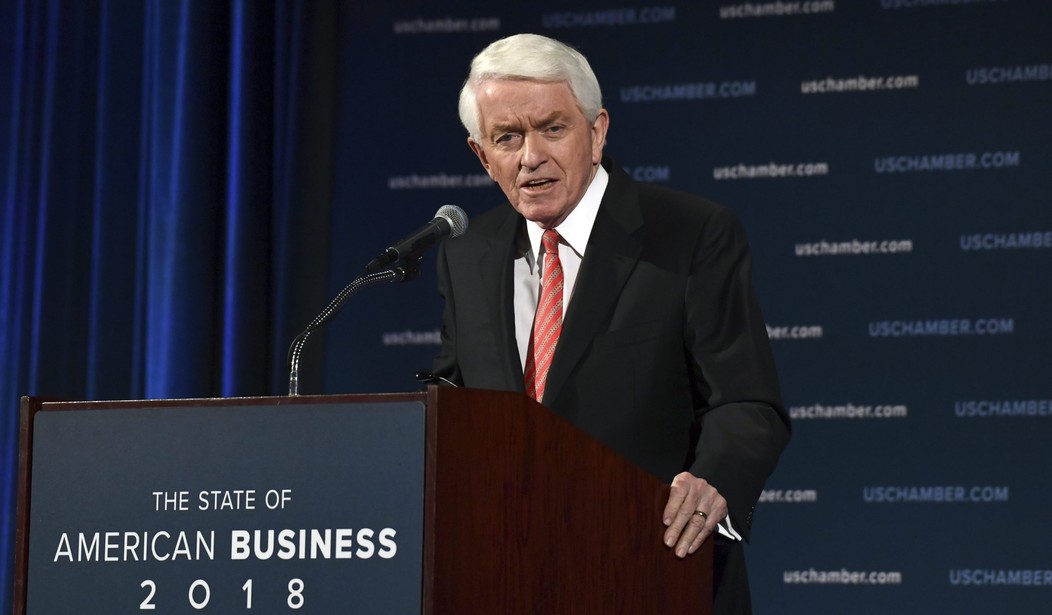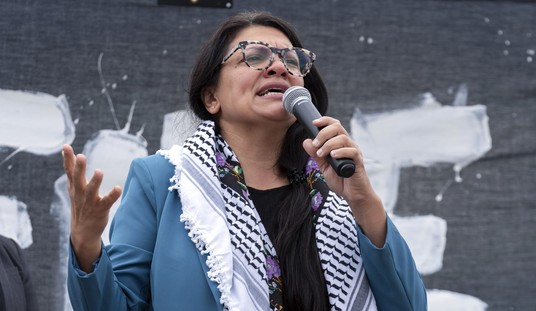WASHINGTON – U.S. Chamber of Commerce CEO Tom Donohue called on Congress to raise the federal gas tax as the “simplest and fairest option” to pay for infrastructure legislation.
“We’re proposing a 25 cent increase, which would cost the average American only about $9 per month for roads, bridges and transit. Americans are willing to contribute a little more if it means better, safer roads, a faster commute and more time with their families,” Donohue said at the recent National League of Cities (NLC) conference. “Now, the gas the tax is a start but it’s not a panacea as we get to investing in other critical infrastructure. We’ve got a lot of updates to do to roads, bridges and transit.”
Donohue acknowledged that a large infrastructure package would “break the bank.”
“Of course, it’s going to break the bank but if you get a little creative, if you come up with an innovative financial strategy, if you include a mix of federal, state, local and private funding and a long-term payment structure, you’re in business,” he said.
D.J. Gribbin, White House special assistant to the president for infrastructure, has said the White House is neutral on the gas tax hike.
“We don’t support it. We don’t oppose it either,” Gribbin said at the U.S. Conference of Mayors winter meeting in January.
Gribbin’s speech at the NLC conference focused heavily on improvements to speed up the permitting process for infrastructure projects. Gribbin said the Trump administration is working in a timely fashion to review projects that have been held up.
“The permitting process takes too long. It’s redundant. It increases costs; creates uncertainty,” he said of the “broken” process. “The federal government forces you to jump through innumerable hoops to get to the basic opportunity to build out your own infrastructure.”
Griffin said the administration is not interested in “short-circuiting” the environmental process. He said President Trump’s goal is to limit the process to a 2-year timeframe for a decision to be issued on a project.
“We have environmental stewardship responsibilities for the federal government that we are going to carry out but, remember, you don’t need a 4-, 6- or 8-year permitting process to carry out those responsibilities,” he said. “We need to fix it now.”
Gribbin provided an example of a Department of Transportation approval that was needed for the Sterling Highway Milepost 45-60 project in Alaska that started in 1975 and was finally approved last month.
“That project was the longest-dated project in federal highways history. They started their process in 1975, 1975 – that’s an outlier, fortunately it’s not your typical process, but it just underscores how broken our current system is,” Gribbin said at the conference.
Donohue said the White House and Congress shouldn’t move forward with any infrastructure plan before making major changes to the permitting process.
“I want to tell you how serious I am about permitting. If we don’t change the permitting system we shouldn’t move forward with a program because it will never get going where it’s supposed to go,” he said.
Donohue connected the coming infrastructure package to immigration reform and the DREAM Act.
“We need an immigration bill that gives us more people. We’ll put everybody we’ve got to work,” he said. “Almost one million of the DREAM folks have jobs and are working in our communities, and if we send them home that’s a double-dumb option.”
Following his remarks, PJM asked Donohue why he wants Congress to pass the DREAM Act.
“It’s pretty simple. It’s a million workers to whom we gave our word and if we send them home we’re a million workers short and we’ve broken our word,” he said.
Trump has insisted on an immigration reform framework that would offer a path to citizenship to 1.8 million Deferred Action for Childhood Arrivals beneficiaries and funds a wall system along the southern border, resulting in a bipartisan DACA fix stalling in Congress.
New York City Mayor Bill de Blasio criticized Trump’s infrastructure plan, arguing that the proposal includes an inadequate level of direct federal funding. De Blasio said he supports the Senate Democrats’ proposal as an alternative since it provides $1 trillion in direct federal spending.
“There is not a requirement in the Senate Democrat bill that you have to provide matchable money. Remember, for so many cities big and small it’s a death knell if you have to come up with a huge amount of money in order to get more federal money – it’s a non-starter and, by the way, it’s not fair because, by that theory, only the jurisdictions that happen to have a lot of resources will ever get ahead,” he said. “So, the rich get richer.”
De Blasio did not answer questions from on-site reporters after his remarks at the event.









Join the conversation as a VIP Member